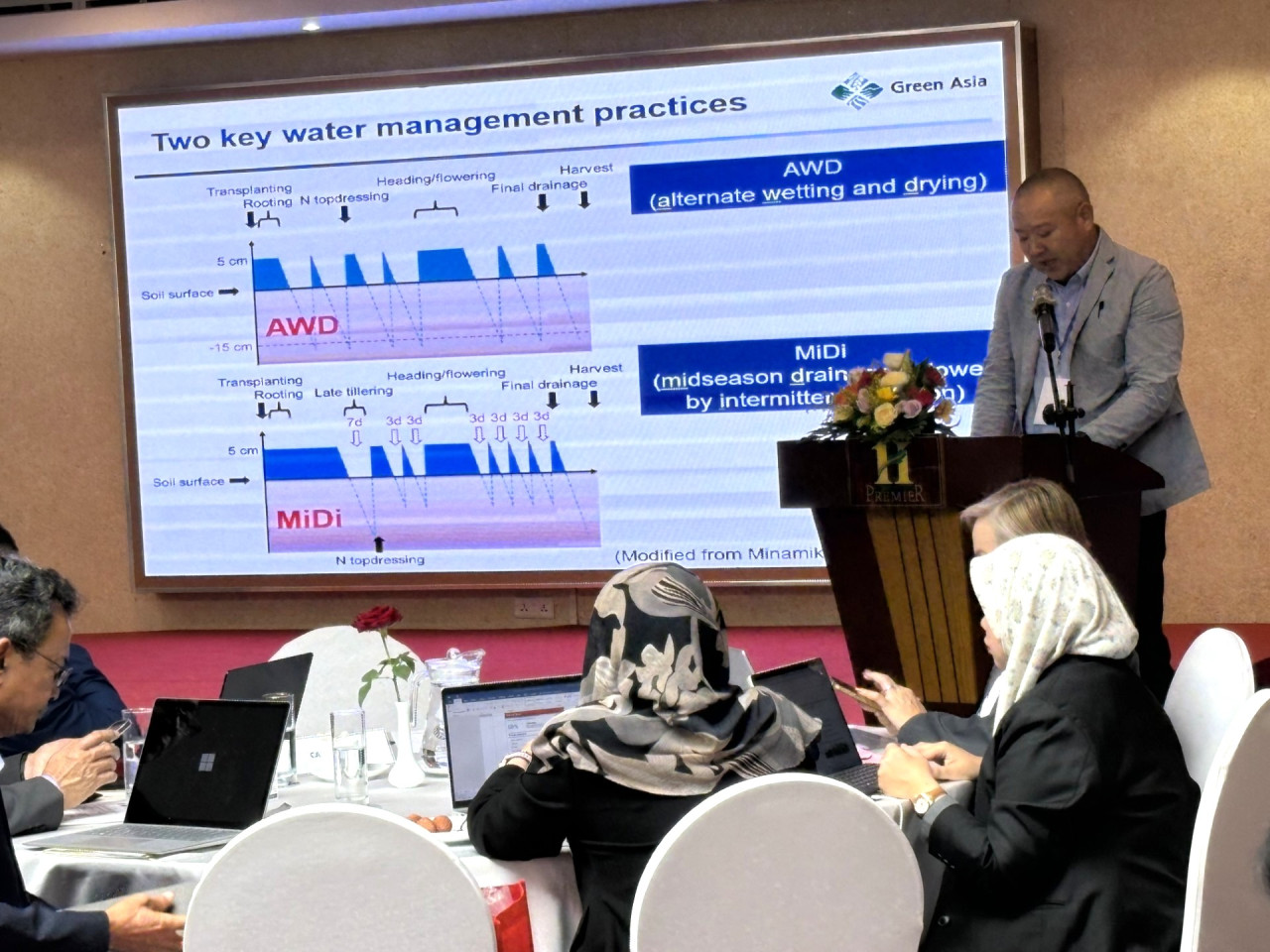At the invitation of the ASEAN Secretariat, the Japan International Research Center for Agricultural Sciences (JIRCAS) participated in the “3rd ASEAN Task Force Meeting: Finalizing the Strategic Framework for Food, Agriculture, and Forestry (FAF), ” held from June 30 to July 1, 2025. During the research presentation session from Japan on July 1, JIRCAS presented the results of its research on intermittent irrigation.
At the beginning of the session, Dr. FUNAKI Yasuro, Project Leader of Green Asia, introduced the activities of JIRCAS and the Green Asia initiative. This was followed by a presentation from Dr. MINAMIKAWA Kazunori, Senior Researcher, who shared the results of demonstration trials on greenhouse gas (GHG) reduction and yield increase through intermittent irrigation techniques such as AWD (Alternate Wetting and Drying) and MiDi (midseason drainage followed by intermittent irrigation). These trials compared data across seven sites in four countries.
Additionally:
- Professor Hoa from Hue University in Vietnam reported results of AWD trials in central Vietnam showing GHG reduction and yield increase.
- JIRCAS Senior Researcher KOBAYASHI Shintaro shared case studies of voluntary AWD adoption by farmers in Bangladesh.
- JIRCAS Senior Researcher LEON Ai presented results from the Mekong Delta showing GHG reduction and production cost savings through AWD.
- International Negotiator INADA from the Ministry of Agriculture, Forestry and Fisheries reported on a JCM (Joint Crediting Mechanism) project involving AWD that has begun in the Philippines, as well as its future outlook.
Dr. Kobayashi also introduced Green Asia Report Series No. 4, titled “Local Biochar Use for Sustainable Agriculture in Asia,” published as part of the Green Asia initiative.
After the presentations, a lively Q&A session was held, providing a valuable opportunity for direct dialogue between Japanese researchers and policy makers from ASEAN countries. Through this session, the effectiveness of intermittent irrigation in reducing GHG emissions from paddy fields was widely recognized, serving as a meaningful opportunity to link scientific knowledge with policy.

